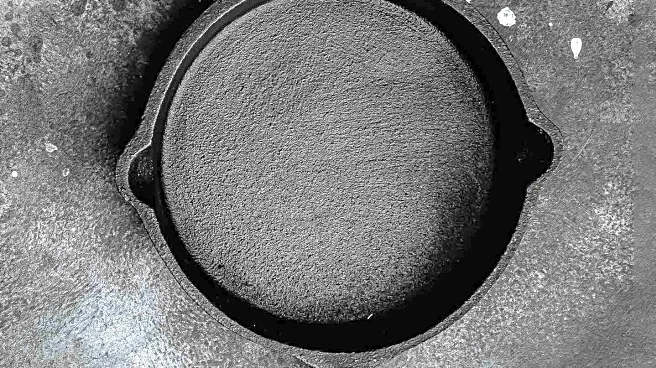What's Happening?
CNET has highlighted the potential damage certain foods can cause to cast-iron skillets, which are popular for their durability and heat retention. High-acid foods such as tomatoes, vinegar, citrus, and wine-based
sauces can erode the seasoned surface of cast-iron cookware, leading to a metallic taste and reduced non-stick properties. While cast iron is versatile, improper use with these foods can strip away the patina that many cooks work hard to maintain. The article provides guidance on how to protect cast-iron skillets from damage, emphasizing the importance of proper seasoning and immediate cleaning after cooking acidic foods.
Why It's Important?
Cast-iron skillets are a staple in many kitchens due to their ability to evenly distribute heat and enhance the flavor of dishes. However, maintaining their seasoned surface is crucial for optimal performance and longevity. Understanding which foods can damage cast iron helps cooks preserve their cookware, ensuring it remains a reliable tool in the kitchen. This knowledge is particularly valuable for home cooks and culinary professionals who rely on cast iron for a variety of cooking techniques. By following best practices, users can extend the life of their skillets and avoid the inconvenience and cost of frequent reseasoning or replacement.
What's Next?
Cooks are encouraged to continue using cast-iron skillets while being mindful of the types of foods they prepare in them. For those who frequently cook with acidic ingredients, alternative cookware such as enameled cast iron or stainless steel may be more suitable. As awareness of proper cast-iron care grows, manufacturers may also explore innovations in cast-iron design to enhance durability and resistance to acidic foods. Additionally, educational resources and cooking classes may increasingly focus on the care and maintenance of cast-iron cookware, helping users maximize their investment in these kitchen essentials.









